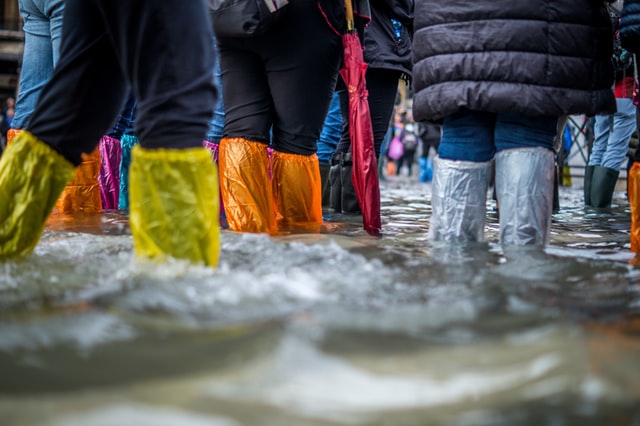Natural disasters wreak havoc on the communities they impact, both short and long term. Flooding, hurricanes, earthquakes and tornadoes can destroy homes, take lives and leave survivors homeless, broke and susceptible to mental illness.
It’s essential to understand the impact of natural disasters on health so you can be there for survivors and advocate for yourself if you’ve personally experienced one. Here are five ways natural disasters can impact your health.
1. Create Physical Trauma
Natural disasters are responsible for the deaths of 60,000 people on average worldwide each year. This number doesn’t consider the people who may die after an event from the lack of food, shelter or medical aid that accompanies infrastructure collapse after a disaster.
Physical harm is of first concern during a natural disaster, and the best way to reduce possible death or injury is to be prepared. Stay connected to local weather advisories, plan for emergencies local to your area, and prioritize physical safety above protecting possessions or financial security.
2. Harm Living Environment
If you’ve safely survived a natural disaster, the next step is to consider how the event may have affected your home. Even if your house survived intact, flooding and earthquakes might impact its ability to shelter your family.
For instance, if you’ve experienced a natural disaster that involved flooding, it’s essential to check your living space for mold. Left untreated, mold can spread quickly and cause a range of health issues that vary from allergy-like symptoms to insomnia.
Water damage, earthquakes and tornadoes can cause structural damage that affects your home’s stability and may make it dangerous for you to return. Checking for any changes and calling in professionals can help you ensure your house safely weathered the storm and can be occupied again.
During disaster relief operations, maintaining cleanliness can be challenging yet vital for health. Portable laundry trailer solutions provide an effective solution for this issue. These mobile units can be quickly deployed to disaster-struck areas, offering survivors and relief workers the means to wash and sanitize clothing and linens. This service not only helps in preventing the spread of disease but also restores a sense of normalcy and dignity to those affected by natural calamities.

3. Increase Risk Of Poisoning
Water quality can also be affected by a natural disaster. Flooding can contaminate city water with chemicals and pollutants that it doesn’t normally contain. Standing water can also sometimes carry bacteria that lead to skin infections.
A personal well on your property can also be contaminated as water rises and mixes with unknown substances. After a natural disaster, don’t assume any water is safe to drink until it’s been tested.
Freshwater can be contaminated easily during a natural disaster, so it’s a good idea to stock a heavy-duty water filter or store bottled water. That way, you have access to adequate fluids until the water supply settles and can be regulated again.
4. Spark Financial Stress
The financial loss of a home, car, belongings and potentially place of work is enough to overwhelm even individuals who have a healthy bank account and secure investments. A disaster can be devastating financially for those who are barely scraping by.
Finances are one of the leading causes of stress in America, and unfortunately, sustained levels can affect physical health over time. For example, it can lead to headaches, stomach upset, depression and substance abuse. Long-term tension also wears down your body and makes you more susceptible to illness.
The best way to combat financial stress is planning ahead and saving for emergencies. You can also get involved with and contribute to agencies that help those affected by natural disasters, such as the American Red Cross, Habitat for Humanity or Save the Children.

5. Impact Mental Health
Many individuals who experience a natural disaster have lingering feelings of fear, helplessness and anxiety. They may develop PTSD related to the event or feel hopeless and overwhelmed dealing with the aftermath.
It’s very important for survivors who are struggling mentally after a disaster not to isolate themselves. Grief, anxiety and hopelessness are all normal emotions after a traumatic event, but with the support of others, these feelings don’t have to be your new normal.
It takes time to rebuild after a disaster impacts your life, but you can come back stronger than before if you remain hopeful during the process. Seeing a counselor, leaning into community and processing your emotions will help you protect your mental health while you get back on your feet.
Withstand Disaster Together
Natural disasters impact many people each year, taking lives and harming the health of survivors, sometimes years after an event. While preparation and awareness can help prevent harm, sometimes it’s necessary to work backward to restore health after a disaster has taken its toll.
Fortunately, the human spirit is resilient and can recover from incredibly stressful and damaging events. When disasters happen, it’s essential to support and care for each other in the aftermath.
Author Bio
Jane is an environmental writer and the founder and editor-in-chief of Environment.co where she covers sustainability and eco-friendly living.


































